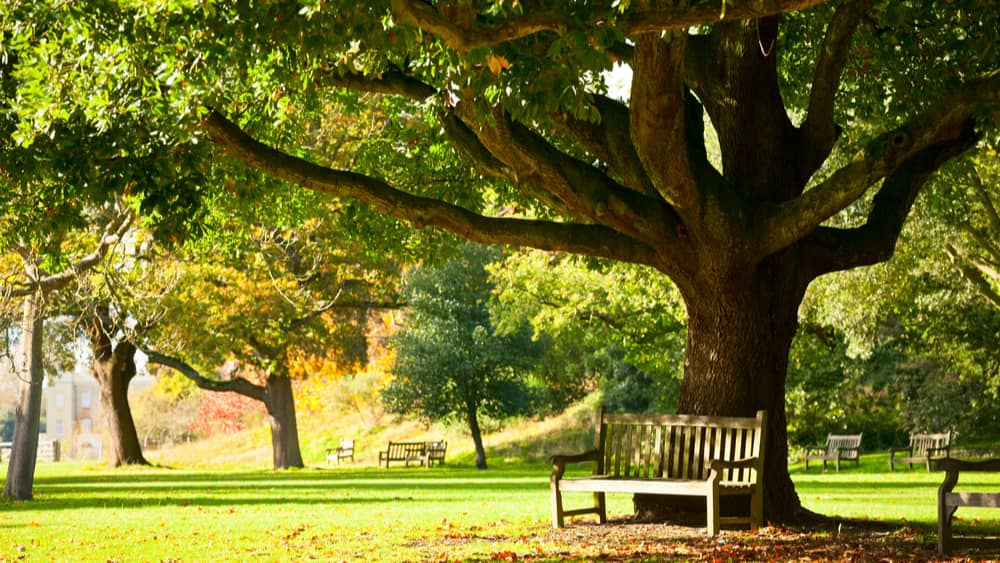
Photo, Shutterstock
The Tennessee Department of Environment and Conservation (TDEC) has recognized 10 of the 56 Tennessee State Parks with platinum level status for their performance in environmental sustainability in the state’s Go Green With Us program.
The honors come before the observance of Earth Day on Thursday, April 22.
“Tennessee State Parks lead by example in protecting and preserving our environment,” Jim Bryson, deputy commissioner of TDEC, said. “We believe that providing nationally recognized outdoor experiences goes hand in hand with protecting and preserving the resource, and the parks recognized today have gone above and beyond in those efforts.”
The 10 state parks achieving platinum level status are Bicentennial Capitol Mall; Burgess Falls; Cumberland Trail; Cummins Falls; Johnsonville; Nathan Bedford Forrest; Paris Landing; Radnor Lake; Rock Island; and Standing Stone.
The status levels in the program include platinum, gold, silver, and bronze. All 56 parks in the Tennessee State Parks system participate in the program, and 15 parks improved their levels of performance over the previous year.
Twenty-two gold level parks this year are Dunbar Cave; Fort Loudoun; Harpeth River; Harrison Bay; Henry Horton; Indian Mountain; Long Hunter; Meeman-Shelby Forest; Montgomery Bell; Norris Dam; Pickett; Pinson Mounds; Reelfoot Lake; Roan Mountain; Sgt. Alvin C. York; Seven Islands; South Cumberland; Sycamore Shoals; and Tims Ford.
Eligible sustainability practices are divided into nine categories including: education and outreach; energy efficiency; green offices; habitat and species protection; guest services; maintenance procedures; recycling and waste; transportation; and water conservation. The parks are divided into different categories based on amenities at each park.
Go Green With Us is a partnership between Tennessee State Parks staff and visitors to become better stewards of natural and financial resources through common-sense sustainability practices into park management and operations.
The platinum parks’ Go Green With Us achievements this year included:
Bicentennial Capitol Mall State Park
The park installed lights on timers in public bathrooms; created a Monarch Waystation, which supports Monarch butterflies; installed recycled rubber speedbumps; installed new planters with native species; installed a new efficient timed irrigation system; composted wood chips and grass clippings; and participated in the Tennessee State Parks Honey Project, which installs honey bee hives.
Burgess Falls State Park
Maintained a large, native butterfly garden; built bluebird houses in partnership with its Friends group and hung the houses at local schools; installed LED lights; employed a solar powered traffic counter; composted at the park office; hung bat houses, wood duck boxes, and bluebird boxes at the park; and used rain barrels.
Cumberland Trail State Park
Held an outdoor classroom project with the Campbell Culture Coalition; established a Partnership Garden with Indian Mountain State Park and the Campbell Culture Coalition; added a pollinator garden; saved shredded paper for a worm program; participated in the Tennessee State Parks Honey Project; composted at the park office; and used a water catchment system to irrigate plants.
Cummins Falls State Park
Maintained rain gardens in conjunction with Friends of Cummins Falls and park neighbors; installed solar lights at restrooms; participated in the Tennessee State Parks Honey Project; promoted native bees with solitary bee boxes; and maintained native plant gardens at the visitor center.
Johnsonville State Park
Hosted a cleanup with Keep the Tennessee River Beautiful; had multiple repurposed or upcycled craft workshops presented during Virtual Jr. Ranger Camp; installed a solar powered gate at the maintenance shop entrance; had a water bottle filling station; reduced mowing with a grove of American chestnuts; and repurposed old event signs for COVID-19 signs.
Nathan Bedford Forrest State Park
Worked with a certified energy manager to reduce energy costs and use; maintained habitat boxes for bats, owls, wood ducks, other birds and snakes; participated in the Tennessee State Parks Honey Project; reused materials to eliminate trash and waste products as well as upcycling; participated in TVA water quality training; and replaced mowed areas with native grass fields.
Paris Landing State Park
Restored 25 acres of grassland; partnered with the Southeastern Grasslands Initiative; installed window film at the office to improve energy efficiency; maintained a pollinator garden; had a TCA Clean Marina certification; had an Audubon Cooperative Sanctuary certification at the golf course; composted food waste on the site; maintained habitat boxes for songbirds, wood ducks, and osprey; participated in the Tennessee State Parks Honey Project.
Radnor Lake State Park
Used recycled and repurposed building materials throughout the park for structures such as the Lake Trail Observation Deck and the aviary viewing decks; hosted multiple cleanups year-round to remove litter and debris from waterways and natural areas; accepted over 700 Christmas trees from surrounding communities to be recycled into mulch used on park trails; upgraded to energy-efficient LED lighting throughout the park; and recycled over 9,000 pounds of mixed materials.
Rock Island State Park
Park has solar lights illuminating signage; maintained pollinator gardens; composted at the park office; maintains large-scale pollinator habitat and meadow in powerline corridor; offered multiple volunteer days for sorting recycling and discussed the importance of recycling; and has a water bottle filling station.
Standing Stone State Park
Installed solar lighting for walkway/landscape; replaced most bulbs with LED lighting; maintained a native plant garden; composted on site; ecofriendly toys for children and pets offered in gift shop; participated in the Tennessee State Parks Honey Project; and the wastewater plant reduced the number of UV lamps with the same quality effluent.






